Wednesday, August 16, 2017
By:
Well, D.C., it's been great.
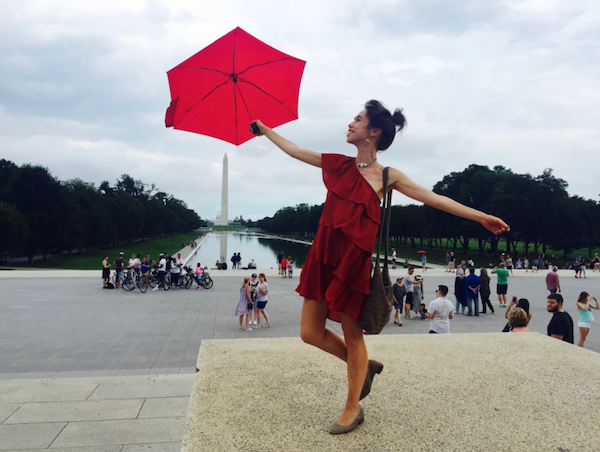
I’m back in California’s high desert. The view is a little different out here:
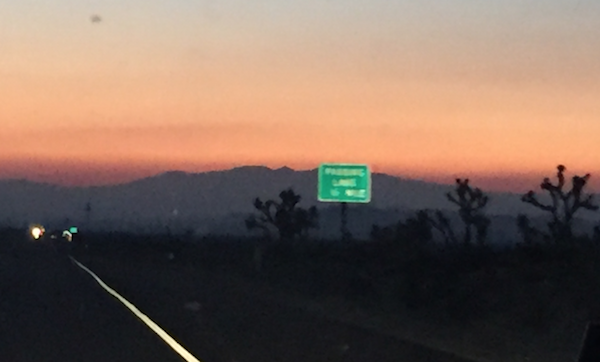
During the final week of the internship, I presented my poster at Goddard and delivered a conference-style oral presentation (ten minutes plus two minutes for questions) at AIP headquarters. Cramming an entire summer’s worth of work into a ten-minute speech wasn’t easy, but I managed.
The PDF of my presentation slides will eventually be available here.
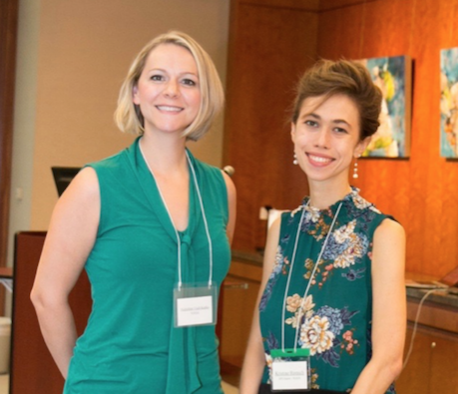
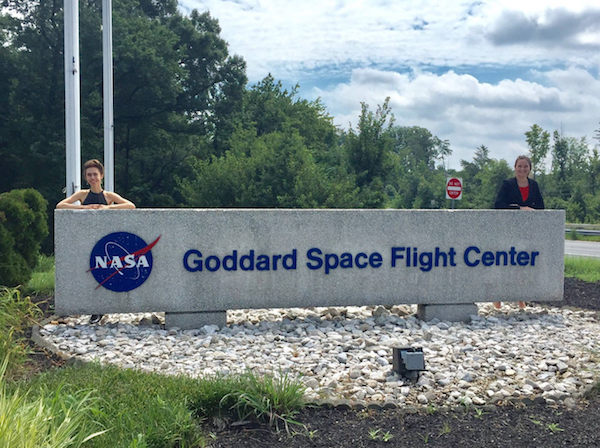
Three years ago, I was an administrative assistant in a corporate office. Before that, I was a graduate student in social psychology. In the spring of 2015, I went back to school — partly out of financial necessity (I had recently lost my job), and partly due to the rediscovery of a long-held fascination with space science. That fascination wasn’t something I’d ever really shared with anyone. I suppose I can’t blame my old friends for the funny looks they gave me when I announced that I was going to be an astrophysicist.
I wouldn’t have made that leap without the encouragement of my husband, who first suggested it. He told me he thought I’d be good at physics. I told him I thought he was crazy.
Within six months of enrolling at community college, I’d gotten a job as a physics tutor, as well as a Learning Assistant for an Electricity and Magnetism course. I signed up for SPS after a summer 2016 REU at the University of Wisconsin - River Falls, which has a thriving chapter. I figured joining a national community of physics students could only help me. I had no way of knowing how much it would.
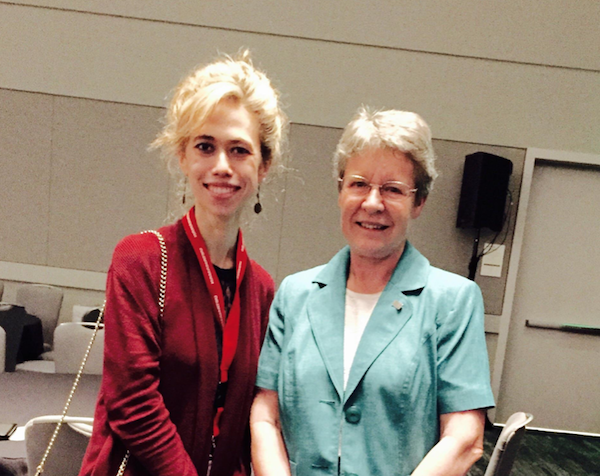
Space constraints prevent me from listing every contact my SPS membership has facilitated, but I’d specifically like to acknowledge current Director Brad Conrad; his predecessor, Toni Sauncy, whose own career trajectory has been (in her words) “a piecewise continuous path”; Goddard’s resident Nobel laureate, John Mather, whose annual travel grant program awarded me $3,000 for presenting my research at conferences; and my fellow SPS interns, whose kindness and broad range of experiences made this summer a uniquely rewarding experience. Despite being the oldest member of my cohort, I never once felt like an outsider. I was just another physics major. And in two weeks I’ll get to see if upper-division E&M is as hard as everyone says it is.
In keeping with final reflections from past interns, I’ll throw out some advice for anyone considering this position (or a similar one) in the future:
- Doubt you’ll get in? Apply anyway. If you haven’t done research before, play up the skills or experience you do have. Are you a quick learner? Have you held a leadership position in your school, job, or SPS chapter? Mention specific projects that interest you. Reading these blogs is a great place to start. (You are more than welcome to contact me personally if you'd like to know more about working at NASA — my e-mail is included at the end of this post.)
- If selected, lay out a plan early on — and be prepared to work independently. Your mentor has plenty of responsibilities; overseeing your project is just one of them. They will not always be around to answer your questions, verify your work, or assign you your next set of tasks. Before starting the internship, introduce yourself over e-mail and ask your mentor if there are any materials you should review before you arrive. During the first week of the program, arrange to meet in person to discuss what’s expected of you. Establish your goals for the project and how your progress will be evaluated. How frequently will you check in with your mentor? Who can you go to for help if you get stuck and your mentor is unavailable?
- You’ll have so many opportunities to expand your horizons. Take advantage of them. At Goddard, for example, there was always a lecture or colloquium happening somewhere on campus, and interns were not only permitted but actively encouraged to attend. Maybe you’ll discover a completely new research interest. Or maybe you’ll decide research isn't for you after all. That’s not necessarily a bad thing. Internships are meant to help you grow as a professional, and sometimes that means figuring out what you don’t want to do.
- Make an effort to connect meaningfully with people besides your assigned mentor. And don't limit yourself to your lab, office, or department. Your mentor will be your primary point of reference for your project, and it’s certainly in your best interest to cultivate that relationship. But get to know other folks, too, especially if their work is appealing to you. Don’t be shy — scientists are often happy to engage with motivated undergraduates. Brush up on your communication skills, and always remember to follow up after an initial meeting.
- Don’t overcommit. Balance is everything! Please don’t get so caught up in networking or perfecting your project that you forget to make time for yourself. Interact with your cohort and explore your surroundings. In less than three months it’ll be over.
So, what’s ahead for me? Next week I’m going eclipse-chasing in Oregon, and the Monday after I get back I’ll officially be a CSUN Matador. As a result of my internship, I have a spot in a CSUN heliophysics lab waiting for me. Later on, I’ll be presenting the work I did at Goddard at the American Geophysical Union’s Fall Meeting in New Orleans. Look out for a summary of my project in the Fall 2017 edition of the Observer.
Whether this is the first of my posts you’ve come across, or whether you’ve been following along from the beginning, I appreciate you stopping by. If you have any questions or comments, or if you just want to talk physics, I invite you to drop me a line at kristine [dot] romich [at] gmail [dot] com.
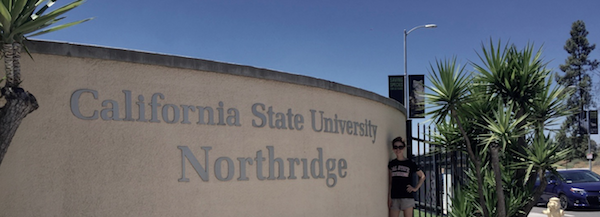
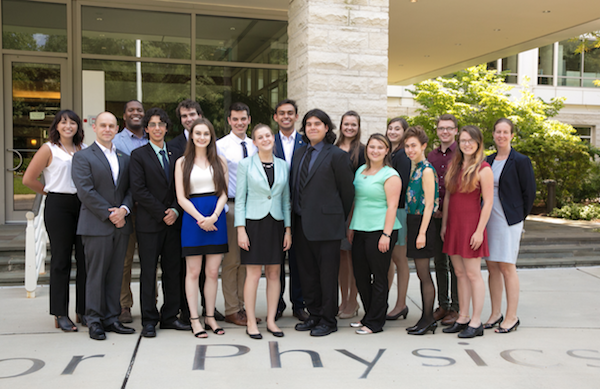
Kristine Romich
